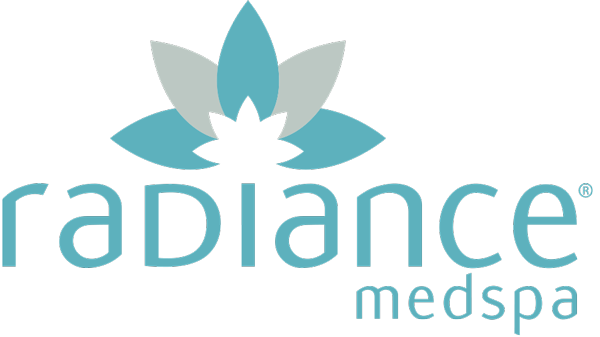![]() Vitamin C: You know it's-spoiler alert-a vitamin, you probably reach for it when you're starting to feel a cold coming on, and chances are, you may have dabbled with a drop or two of it in your skin care at some point. So why is this standard ingredient that's kind of always around not always applauded for all the many things it does? “It's definitely an underrated and unsung ingredient that people think is passé,” says New York dermatologist Dennis Gross, MD, who is launching a new line devoted completely to the ingredient this week. “But it's been reengineered and advanced and it's more important than ever for anyone who wants to have beautiful, younger-looking skin. It's part of the magic potion-it is such a powerful anti-ager with a broad spectrum of benefits.”
Vitamin C: You know it's-spoiler alert-a vitamin, you probably reach for it when you're starting to feel a cold coming on, and chances are, you may have dabbled with a drop or two of it in your skin care at some point. So why is this standard ingredient that's kind of always around not always applauded for all the many things it does? “It's definitely an underrated and unsung ingredient that people think is passé,” says New York dermatologist Dennis Gross, MD, who is launching a new line devoted completely to the ingredient this week. “But it's been reengineered and advanced and it's more important than ever for anyone who wants to have beautiful, younger-looking skin. It's part of the magic potion-it is such a powerful anti-ager with a broad spectrum of benefits.”
Benefit #1: It's an Antioxidant A-Lister
Vitamin C is an antioxidant, an often-thrown-around term that sounds good, but not always totally straightforward to understand in relation to aging and the skin. To break it down, New York dermatologist Dendy Engelman, MD, says to look at antioxidants as “skin protectors.” They fight against free-radical assaults (things like UV rays, sun exposure, pollution and cigarette smoke) by neutralizing oxidative stress that causes cell damage, which, in excess and over time, results in signs of aging. “Free-radical scavengers are in search of a missing electron. Antioxidants like vitamin C neutralize the damage by donating their electron, thus minimizing the damage a free radical can do on skin proteins such as collagen or elastin,” she says, adding that the more antioxidants present in skin, the less damage free radicals can inflict, which is directly tied to better skin health and a more youthful appearance.
Benefit #2: It's a Collagen-Booster
Perhaps the most unique benefit of vitamin C is the fact that it has the ability to boost collagen. “We talk about lines, wrinkles, laxity, loose skin, crow's-feet. All of those things boil down to collagen-it is the holy grail of youth,” Dr. Gross says. “It's a structural protein in the skin that gives it its firmness. You have an abundance of it when you are younger, but you lose it as you age and that's what leads to those lines and wrinkles. Vitamin C stimulates collagen-it works on the cells in the skin that have become lazy with age and tells them to make more collagen.” As he also stresses, vitamin C is the only collagen stimulator that can boast of having antioxidant properties. “So it's not only simulating your own collagen, but it's protecting it as well.”
Benefit #3: It Can Help With Pores
Dr. Gross says you can scrub until “the cows come home,” but most products won't do much to help with the appearance of your pores. “Pores can look large because of the collagen loss. By stimulating collagen and thickening your skin, vitamin C can help pores look smaller and better.”
Benefit #4: It's a Big-Time Skin Brightener
In addition to protecting against UVA/UVB exposure, vitamin C also lightens pigmentation and brightens skin tone. “It works directly on the mechanism that causes uneven skin tone-sun spots, melasma, hyperpigmentation; all those things that cause uneven color in your skin,” Dr. Gross says. Plus, as Dr. Engelman points out, you can safely wear it during the day and add it to your normal nighttime regimen. Her tip: Start young with a moisturizer containing an antioxidant complex, such as vitamin C. (She recommends Nerium Age-Defying Day Cream, AD Formula, Skinceuticals C E Ferulic and Nerium Age-Defying Eye Serum.)
Benefit #5: It's Potent When Applied to Skin
As Dr. Gross explains, when you apply vitamin C to your skin, it's a lot more concentrated of a dosage when compared to taking it orally. “It is so much stronger when applied directly. You would have to take so many milliliters of vitamin C orally to actually reach your skin that you would get sick. Topical application of vitamin C is so much more powerful in terms of what it's going to do for your skin.”
Benefit #6: It Pairs Nicely With Retinol
The bottom line: “Vitamin C and retinol are two gold standards for skin care,” says Dr. Engelman, adding that they both do different things. “While both reduce signs of aging, vitamin C acts as a protector for your skin and neutralizes issues before there is a problem and improves current skin conditions. Retinols act as an 'exfoliating' tool to rid the skin of damaged cells and stimulate production.” Adds Dr. Gross, “Retinol is not like vitamin C. It's not an antioxidant and it's not a direct stimulator of collagen. I recommend using both.”

